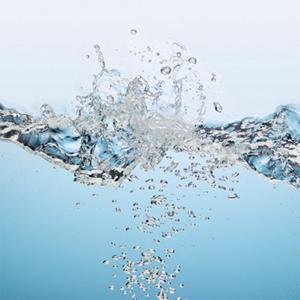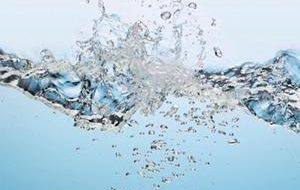
Close up of water splashing and droplets
Tips for Keeping Water Fresh in an RV
If you turn on a faucet in your RV’s kitchen or bath and are hit with the smell of rotten eggs, that’s a sure sign that it’s time to freshen your RV’s system. Although some well water contains sulfur, which can lead to the smelly spray, the likely culprit is a buildup of bacteria in your freshwater system.
Don’t wait until the water starts smelling before you sanitize. It’s a good idea to flush your recreational vehicle’s water system once or twice a year to keep your water fresh. Here’s how to sanitize your RV’s water supply system:
1. Begin with your freshwater tank about half full.
2. Turn the water heater off and wait for it to cool.
3. Add a cleaning solution to the water tank. Here’s where opinions differ. Most people agree that using a household bleach solution is the most effective way to cleanse the bacteria (Note: always dilute bleach with water – about ¼ cup of household bleach for each 15 gallons of tank capacity); however, some people prefer to use milder cleansers like dish detergent, baking soda or vinegar. The bleach solution is the most effective sanitizer, but make sure you flush and rinse well.
4. Next, using the water pump (not the external water supply) turn on every hot and cold faucet in the unit, one at a time, letting the chlorinated water run through them for one or two minutes. You should be able to smell the chlorine.
5. Top off the RV freshwater tank and let the solution soak overnight if possible.
6. Completely drain the system by flushing the faucets for several minutes each.
7. Open the freshwater tank drain valve as well as the hot water tank drain plug and drain.
8. Close all of the valves and faucets and drain plugs.
9. Fill water tank about half full again with fresh water.
10. Drive your RV around the block to let the water slosh around, which will help rinse the system.
11. Flush each faucet for several minutes each repeating until the tank is again empty. (Make sure you are using the water pump and not an external water supply.)
12. Fill the tank again. The water should now be safe to drink but if the chlorine odor is too strong, flush with baking soda or vinegar and repeat the freshwater rinse.
Remember: Never turn on your water heater while it is empty.
This article was brought to you by Good Sam RV Emergency Road Service


Vicki
Please can someone help? My fresh water turnes to something that looks like tang when you heat it up. I have done the bleach, and a water conditioner and it still looks the same. When it comes out it is clear but when you put heat to it you could swear you just added orange juice. I don’t know what to do.
John Gerry
Does anyone out in RV land have a good recipe to flush out a freshwater tank prior to going out on a trip?
MackGale
Does anyone know about accumulators. I use a reverse osmosis water filtration system and have recently been loosing water pressure and my hot water has cooled. I have bypassed the osmosis membrane and am using city water with all the pressure I need. My guess it is the accumulator or pump. Does anyone have any ideas?
Orange County California Plumbing
This sounds alot like the pains I experience working on my sailboat! Oh the things we must endure for luxury.
Rick
I have floating clear debri in the ice that comes from the ice maker. Does anyone know what is the cause and how to eliminate?
Pingback: RV Weekly Round-Up (March 28-April 3, 2009)
Alpenliter
And never fill your fresh water tank at an RV Park that has the word “Sulpher” in its name!
Fred Wolf
Limit the time to 4 hours if you have any copper line in your system, such as the Aqua Hot system…….
Tom Hargreaves
I’m about to do this very thing to my unit. I’ve been thinking, though, that since I use an enzyme product in my black tank, I should refrain from dumping any of the super-chlorinated water down the toilet. My thought is that even though the black tank has been empty all winter and any enzymes long gone, even a little chlorine in a gallon or so of water will probably kill off the first charge of enzyme that I put in, leading to problems since it may be a while before the tank accumulates enough waste for me to dump it.
Of course, I HAVE been known to put too fine a point on things . . .
Happy trails!
Tom